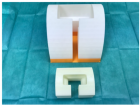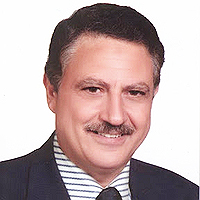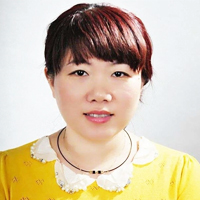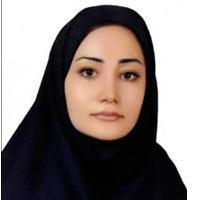Abstract
Research Article
Perception of Brazilian adolescents about cancer prevention
Eduardo Blanco Cardoso*
Published: 31 December, 2021 | Volume 5 - Issue 1 | Pages: 055-059
Cancer, as a disease, has found a place in the social imaginary. Individuals construct ideas based on pre-established discourses—be they medical, media, or popular—which often hinder its prevention. Educational interventions have tended to focus on spreading information about the disease, ignoring its social connotations. The objective of the present study is to investigate the concept of cancer prevention in 980 adolescents, aged between 12 and 18 years, attending primary and secondary school in three public schools and one private school in the metropolitan region of São Paulo and the municipality of Dom Viçoso, Minas Gerais. The notion of prevention implies the dominant feeling of performing medical examinations from a symptom, against the idea of preventing, even when there is no clinical manifestation of the body.
The majority of students emphasize the advantages of early diagnosis and that the decisive factor for the cure corresponds to the moment of detection: "cancer must be discovered in time". This is a solid belief within the body of knowledge about the disease that can be used as a starting point in prevention messages.
However, even when the importance of early detection of cancer is understood as an essential element for its cure, care practices do not accompany the set of principles that regulate prevention or its demands.
Read Full Article HTML DOI: 10.29328/journal.cjncp.1001038 Cite this Article Read Full Article PDF
Keywords:
Social representations; Social interaction; Cancer; Adolescence
References
- Ministry of Health. 2015. Health Surveillance Secretariat. Department of surveillance of non-communicable diseases and conditions and health promotion. Saúde Brasil 2014: An analysis of the health situation and external causes/Ministry of Health, Health Surveillance Secretariat, Department of Non-Communicable Disease and Health Surveillance and Health Promotion. Brasília, Brazil: Ministry of Health
- Goss PE, Lee BL, Badovinac-Crnjevic T, Strasser-Weippl K, Chavarri-Guerra Y, et al. Planning cancer control in Latin America and the Caribbean. Lancet Oncol. 2013; 14: 391–436. PubMed: https://pubmed.ncbi.nlm.nih.gov/23628188/
- National Cancer Institute. Cancer screening overview (PDQ®)–health professional version. 2017. https://www.cancer.gov/about-cancer/screening/hp-screening-overview-pdq
- Blanco EC, Schilling F. Percepções sobre o câncer na visão de pacientes, familiares e equipe de saúde. In Anais da 12º conferência internacional sobre representações sociais e IV colóquio Luso-Brasileiro sobre saúde, educação e representações sociais. 2004; 2529–2536.
- Bardin L. Análise de conteúdo. Lisboa, Portugal: Edições 70 Ltda. 2002.
- Parsons T. El sistema social. Madrid, Spain: Ed. Alianza Universidad. 1982.
- Villa FG. La cara social del cáncer. Barcelona, Spain: Ediciones Octaedro, S.L. 2012.
- Woolf SH. The power of prevention and what it requires. 2008; 299: 2437–2439. PubMed: https://pubmed.ncbi.nlm.nih.gov/18505953/
- Woolf SH. The big answer: rediscovering prevention at a time of crisis in health care. Harvard Health Policy Review. 2006; 7: 5–20.
- http://www.sehn.org/tccpdf/the/big/answer.pdf
- Nelson HD, Tyne K, Naik A, Bougatsos C, Chan BK, et al. Screening for breast cancer: an update for the U.S. preventive services task force. Ann Inter Med. 2009; 151: 727–737.
- Vecchia C. Fecal occult blood screening for colorectal cancer: open issues. Ann Oncol. 2002; 13: 31–34. PubMed: https://pubmed.ncbi.nlm.nih.gov/11863106/
- Colditz GA, DeJong W, Emmons K, Hunter DJ, Mueller N, et al. Harvard Report on Cancer Prevention. Vol 2: Prevention of Human Cancer. Cancer Causes Control. 1997; 8: S1–S3.
- Wu S, Powers S, Zhu W, Yusuf A. Hannun. 2016. Substantial contribution of extrinsic risk factors to cancer development. 529: 43–47. PubMed: https://pubmed.ncbi.nlm.nih.gov/26675728/
- Goleman D. Inteligência emocional. Rio de Janeiro, Brazil: Objetiva. 2013.
- Lillberg K, Verkasalo PK, Kaprio J, Teppo L, Helenius H, et al. Stress of daily activities and risk of breast cancer: a prospective cohort study in Finland. Int J Cancer. 2001; 91: 888–893. PubMed: https://pubmed.ncbi.nlm.nih.gov/11275996/
- Carvalho AD, Kose LM. AIDS: ainda dá tempo de se prevenir. III COMSAÚDE - comunicação e promoção da saúde. Adamantina, São Paulo: Comtexto Comunicação e Pesquisa S/C Ltda. 2000.
- de Araujo IS, Cardoso JM. Comunicação e saúde. Rio de Janeiro, Brazil: Fiocruz. 2007.
- Hardy E, Jiménez AL. Masculinidad y género. In Salud y equidad: una mirada desde las ciencias sociales, eds. Roberto Briceño-León, Maria C. de Souza Minayo, and Carlos E. A. Coimbra, 349–359. Rio de Janeiro, Brazil: Editora Fiocruz. 2002.
- Gomes R, Nascimento EF, Araujo FC. Por que os homens buscam menos os serviços de saúde do que as mulheres? As explicações de homens com baixa escolaridade e homens com ensino superior. Cadernos de Saúde Pública. 2007; 23: 565–574.
- Schraiber LB. Equidade de gênero e saúde: o cotidiano das práticas no programa saúde da família do recife. In Gênero e saúde: programa saúde da família em questão, eds. Wilza Villela, and Simone Monteiro, 39–61. Rio de Janeiro, Brazil: Abrasco, Fundo de População das Nações Unidas. 2005.
Figures:
Similar Articles
-
Experiences of patients with lung cancer receiving concurrent chemo-radiotherapyEunsook Choi*,Sunhee Park. Experiences of patients with lung cancer receiving concurrent chemo-radiotherapy. . 2021 doi: 10.29328/journal.cjncp.1001032; 5: 015-023
-
Perception of Brazilian adolescents about cancer preventionEduardo Blanco Cardoso*. Perception of Brazilian adolescents about cancer prevention. . 2021 doi: 10.29328/journal.cjncp.1001038; 5: 055-059
Recently Viewed
-
Cystoid Macular Oedema Secondary to Bimatoprost in a Patient with Primary Open Angle GlaucomaKonstantinos Kyratzoglou*,Katie Morton. Cystoid Macular Oedema Secondary to Bimatoprost in a Patient with Primary Open Angle Glaucoma. Int J Clin Exp Ophthalmol. 2025: doi: 10.29328/journal.ijceo.1001059; 9: 001-003
-
Metastatic Brain Melanoma: A Rare Case with Review of LiteratureNeha Singh,Gaurav Raj,Akshay Kumar,Deepak Kumar Singh,Shivansh Dixit,Kaustubh Gupta*. Metastatic Brain Melanoma: A Rare Case with Review of Literature. J Radiol Oncol. 2025: doi: ; 9: 050-053
-
Depression as a civilization-deformed adaptation and defence mechanismBohdan Wasilewski*,Olha Yourtsenyuk,Eugene Egan. Depression as a civilization-deformed adaptation and defence mechanism. Insights Depress Anxiety. 2020: doi: 10.29328/journal.ida.1001013; 4: 008-011
-
Drinking-water Quality Assessment in Selective Schools from the Mount LebanonWalaa Diab, Mona Farhat, Marwa Rammal, Chaden Moussa Haidar*, Ali Yaacoub, Alaa Hamzeh. Drinking-water Quality Assessment in Selective Schools from the Mount Lebanon. Ann Civil Environ Eng. 2024: doi: 10.29328/journal.acee.1001061; 8: 018-024
-
Rapid Microbial Growth in Reusable Drinking Water BottlesQishan Liu*,Hongjun Liu. Rapid Microbial Growth in Reusable Drinking Water Bottles. Ann Civil Environ Eng. 2017: doi: 10.29328/journal.acee.1001007; 1: 055-062
Most Viewed
-
Evaluation of Biostimulants Based on Recovered Protein Hydrolysates from Animal By-products as Plant Growth EnhancersH Pérez-Aguilar*, M Lacruz-Asaro, F Arán-Ais. Evaluation of Biostimulants Based on Recovered Protein Hydrolysates from Animal By-products as Plant Growth Enhancers. J Plant Sci Phytopathol. 2023 doi: 10.29328/journal.jpsp.1001104; 7: 042-047
-
Sinonasal Myxoma Extending into the Orbit in a 4-Year Old: A Case PresentationJulian A Purrinos*, Ramzi Younis. Sinonasal Myxoma Extending into the Orbit in a 4-Year Old: A Case Presentation. Arch Case Rep. 2024 doi: 10.29328/journal.acr.1001099; 8: 075-077
-
Feasibility study of magnetic sensing for detecting single-neuron action potentialsDenis Tonini,Kai Wu,Renata Saha,Jian-Ping Wang*. Feasibility study of magnetic sensing for detecting single-neuron action potentials. Ann Biomed Sci Eng. 2022 doi: 10.29328/journal.abse.1001018; 6: 019-029
-
Pediatric Dysgerminoma: Unveiling a Rare Ovarian TumorFaten Limaiem*, Khalil Saffar, Ahmed Halouani. Pediatric Dysgerminoma: Unveiling a Rare Ovarian Tumor. Arch Case Rep. 2024 doi: 10.29328/journal.acr.1001087; 8: 010-013
-
Physical activity can change the physiological and psychological circumstances during COVID-19 pandemic: A narrative reviewKhashayar Maroufi*. Physical activity can change the physiological and psychological circumstances during COVID-19 pandemic: A narrative review. J Sports Med Ther. 2021 doi: 10.29328/journal.jsmt.1001051; 6: 001-007

HSPI: We're glad you're here. Please click "create a new Query" if you are a new visitor to our website and need further information from us.
If you are already a member of our network and need to keep track of any developments regarding a question you have already submitted, click "take me to my Query."


















































































































































